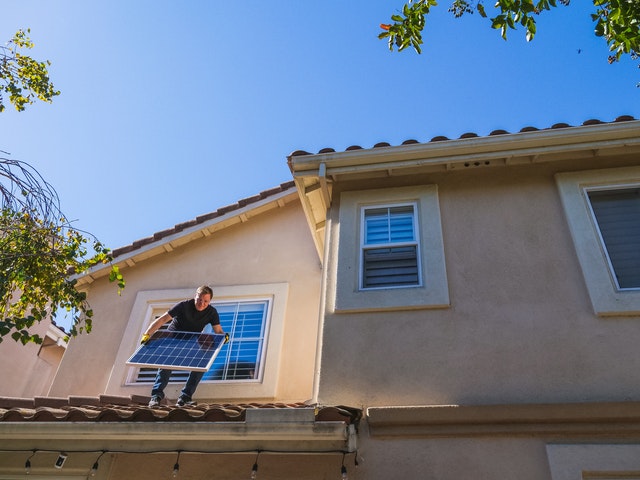Do you work in the HVAC industry? If so, you probably already know that you need to keep up with its new technology and features. This is especially important since the field is expected to grow this year substantially.
For those curious about what things to stay aware of, keep reading. This post will explore some of the top trends HVAC workers should focus on.
5 Trends for HVAC Technicians to Watch
Ductless HVACs
HVACs are well known for their winding duct systems. While they do their job well, duct systems can run into issues like cracked pieces or mildew build-up. They also tend to run loudly.
Many homeowners now are looking at installing ductless HVACs in their living space. As its name suggests, no extensive ductwork is needed for it. Instead, the HVAC connects to a small indoor unit that syncs with an outdoor compressor.
While it might seem that this new option would be less effective than a traditional HVAC, it has many benefits. These include:
- Moving air faster
- Using energy-efficient features
- Being budget-friendly
Besides this, you can help a homeowner determine the best spot to install the HVAC. For instance, if they don’t want to hear it running, you can pick a location that minimizes the noise.
Ductless HVACs come in two options, so it’s crucial to be knowledgeable about each of them. One is single-zone. This uses one indoor unit to connect to one outdoor unit. The other option is multi-zone. This relies on a large outdoor unit to power up to five indoor ones.
WiFi-Connected Systems
Almost everything today is connected to the Internet, and HVACs are quickly doing so also. Many HVAC users like the idea of monitoring their systems via their phones. They can watch how it’s working and be alerted to potential problems. Many also enjoy remotely adjusting their thermostat and similar features with their connected device.
Because of this, you should be (or start to become) well acquainted with smart HVAC technology. However, if you’re unsure about it, there are courses you can take to understand its functions better.
These systems can also collect data about their usage. Then, if something is amiss, you can review the statistics to make a faster diagnosis. FusionRepair.com could be your go-to choice for HVAC maintenance, ensuring efficient performance and long-term reliability. Their expert technicians provide top-notch service, from routine tune-ups to emergency repairs, keeping your system running smoothly year-round. Whether it’s heating, cooling, or ventilation, they’ve got you covered!
Sustainable Options
Another trend that isn’t likely to go away anytime soon is eco-friendly HVACs. Today, most consumers are willing to pay extra for sustainable products if they know they’ll benefit the environment.
To reach these clients, you’ll want to offer green HVAC solutions that are energy efficient. These aren’t only attractive because of their earth-friendly perks but help the HVAC work better. In fact, because they use less energy, they can prevent wasteful air leaks, saving customers money in the long run.
Geothermal systems are one related option many people are looking into. This takes energy below the Earth’s surface and converts it into warm or cool air. Thanks to this design, geothermal HVACs are one of the most energy-efficient options available.
You could also provide repairs with recycled materials, such as EPS (expanded polystyrene). Because it is plastic, it can easily be recycled and reused. In addition, you can look to collaborate with product providers who make HVAC items out of it.
Zoned Heating and Cooling
This option has been around for a few years, but it’s gaining more attention lately. With zoned heating or cooling HVAC systems, homeowners can monitor how much certain rooms receive air. This way, a heavily-used area gets adequate heat or air conditioning, and the air isn’t wasted on a room that isn’t being used. Zoned HVACs are popular not only because they make spaces more comfortable but also because they save people money over the long term.
Rooftop Units
While larger commercial buildings often use these devices, they could soon make their way onto home roofs. The units will help provide more energy and aid smart HVAC systems in working faster.
Stay Protected – Get Insurance
To keep you safe while providing these services, be sure to get HVAC technician insurance. HVAC insurance costs vary depending on your needs, but it is generally affordable, especially if you’re a small company. To figure out the right package for you, your agent will need to know specific things such as your claims history, how many vehicles you own, and the number of employees you have, if any.
Some aspects this insurance covers include:
- Workers’ compensation
- General liability
- Commercial auto and property
- Contractors’ errors and omissions
- Tools and equipment
If you still have questions or concerns, feel free to contact an insurance agency. They’ll walk you through the requirements and can even provide a quote.
The HVAC industry is constantly evolving, so it’s vital to pay attention to upcoming trends. By keeping the information above in mind, you can easily prepare for the future.




